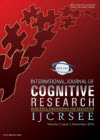DIALOGIC LEARNING: A SOCIAL COGNITIVE NEUROSCIENCE VIEW
DIALOGIC LEARNING: A SOCIAL COGNITIVE NEUROSCIENCE VIEW
Author(s): Ali NouriSubject(s): Neuropsychology
Published by: Удружење за развој науке, инжењерства и образовања
Keywords: Dialogue; Dialogic Learning; Neuroscience and Education; Pedagogy;
Summary/Abstract: This paper represents an exploration of the educational value of dialogue as a teaching strategy in contemporary classrooms in light of recent evidences grounded in knowledge produced by social and cognitive neuroscience research. The relevant literature suggests that dialogue is a unique feature of humans and no other animal is able to dialogue as they do. Humans are biologically wired for dialogue and interaction with one another in socially and culturally shaped contexts. This dynamic interdependence of social and cognitive processes plays a critically important role in construction of knowledge and cognitive development. It is also well established that social processing in the brain is strongly interrelated with the processing of emotion. Children therefore, are social learners who actively construct meaning and knowledge as they interact with their cultural and social environment through dialogue. In conclusion, recent advance in cognitive and social neuroscience is providing a new basis for the communicative conception of learning in which authentic interaction and dialogue are key components. This suggests new avenues of research that need to empirically investigate the role of dialogue on students’ mind and brain development.
Journal: International Journal of Cognitive Research in Science, Engineering and Education (IJCRSEE)
- Issue Year: 2/2014
- Issue No: 2
- Page Range: 87-92
- Page Count: 6
- Language: English

